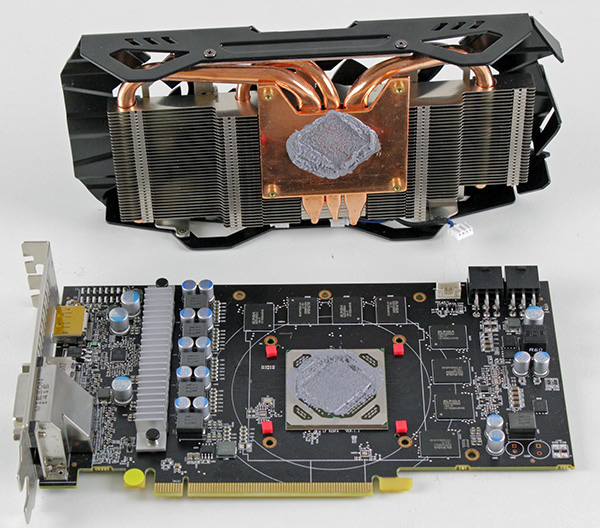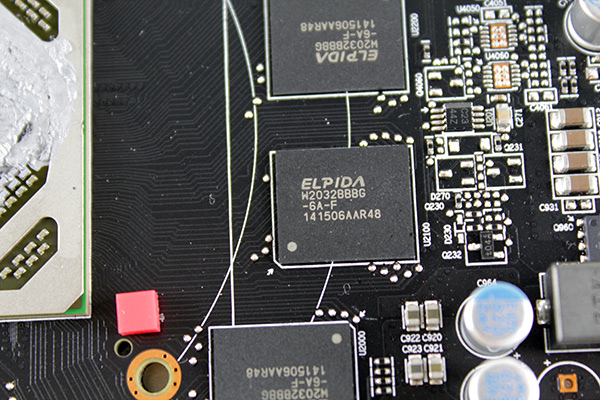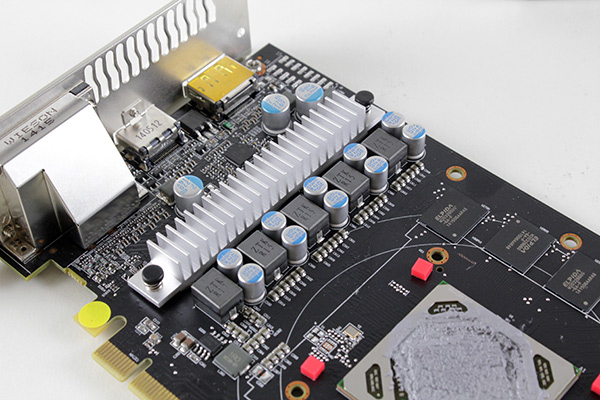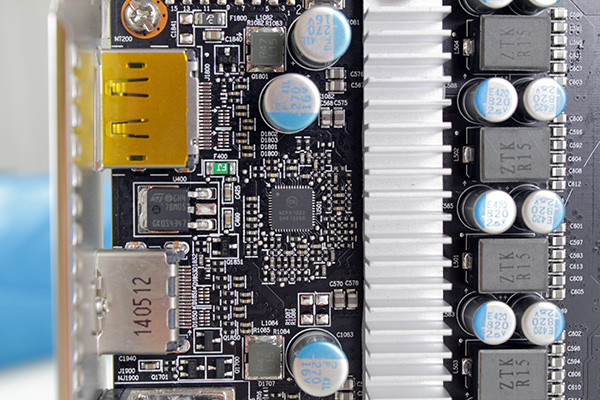Index
Since the shroud is open on all sides there, it is easy to get a good look at the card while it is still mounted.
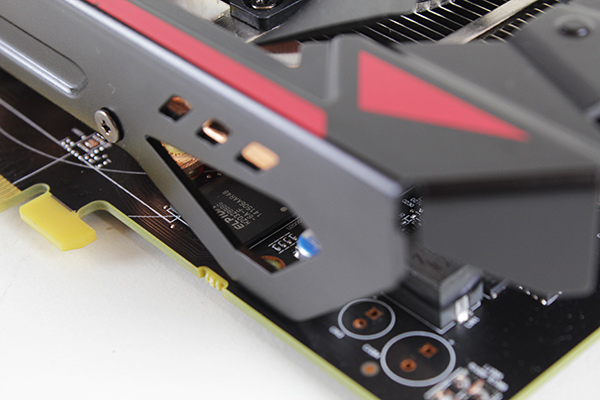
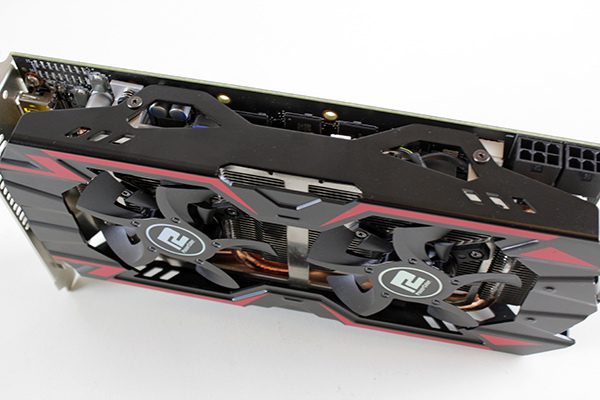
Here are the fans and their cables, some memory modules and a few other components on the PCB.
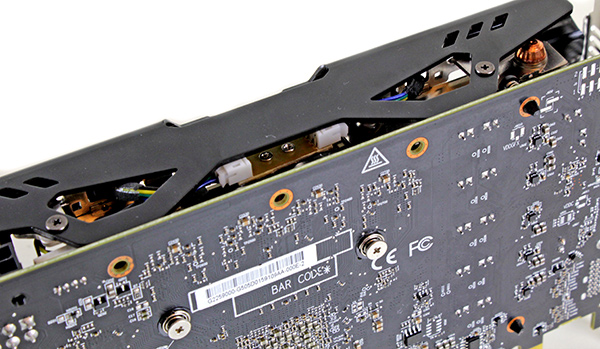
The dual slot cooler uses two 7cm fans and the double bladed fans look rather unusual. PowerColor claims the double-blade design can focus airflow into the centre and increase airflow by up to 20 percent compared to traditional designs. The design is also supposed to prevent dust from depositing at the bottom.
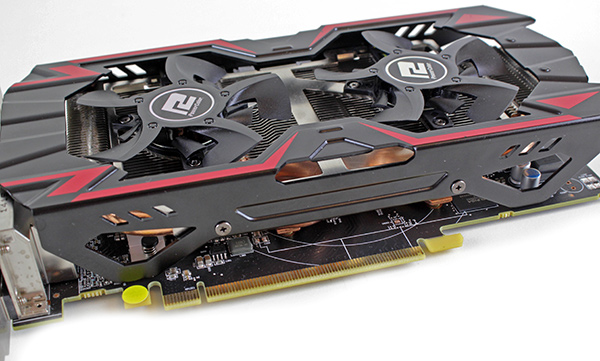
The shroud of the cooler can be removed easily, there is no need to remove the entire cooler.
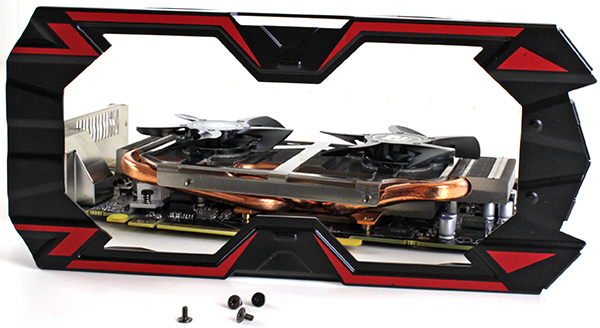
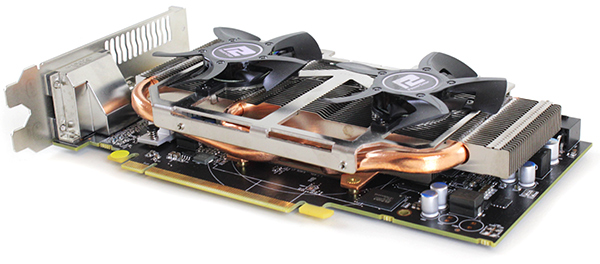
The heatsink uses somewhat thicker fins and they feel sturdy, not like something that would easily bend while performing maintenance.
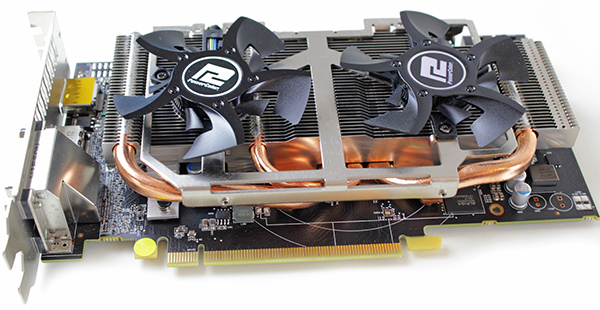
The heat dissipation system employs a total of three U–shaped heatpipes, two 8mm and one 6-mm pipes are clearly visible.

Tinkerers should be able to easily remove the shroud and fans, allowing access to the whole heatsink. You can remove the fans simply by undoing four screws that keep them attached to the heatsink.
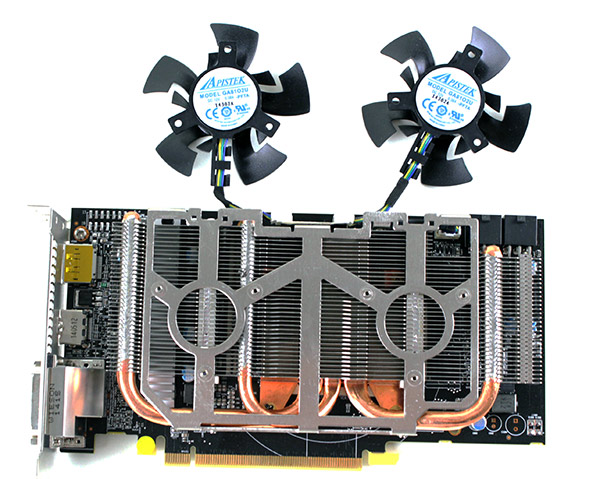
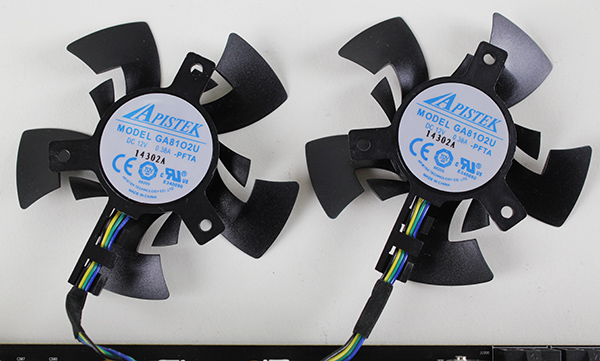
The Double Blade fans are not mounted on the heasink directly, they rest on an aluminium frame which doubles as a shroud support.
Here you can see the bear heatsink and we assure you that PowerColor did not cut any corners. Everything feels robust and very precise. We cannot escape the feeling that the heatsink could have been a bit bigger and backed by bigger fans. Although the card is practically inaudible, temperatures can exceed 78 degrees Celsius. This is not a big concern, as the components can easily handle even more.
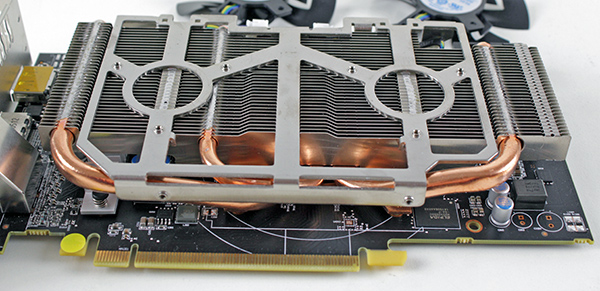
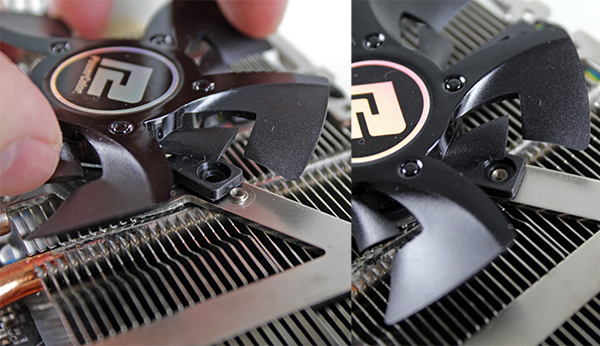
You can see the heatsink, fan frame and fan wiring in the next photo.
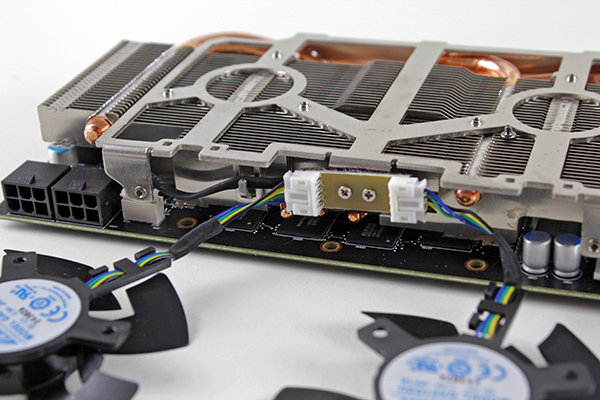
The opaque black plastic used in the fan blades is not attractive like the transparent plastic used in the R7 270PCS+ (image below), but of course it has no impact on performance.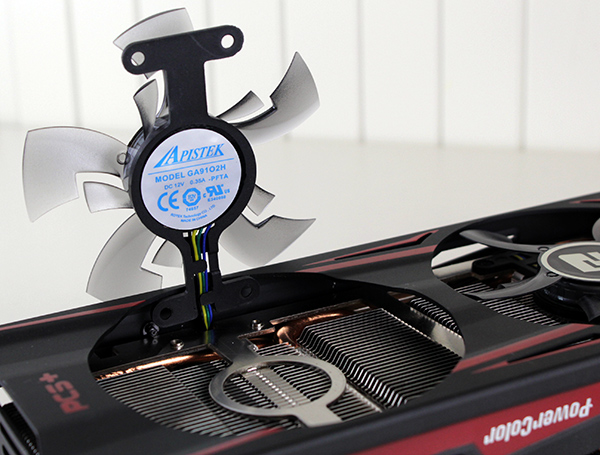
PowerColor uses Elpida memory rated for data rates of up to 6Gbps (1500MHz). The card has of eight 256MB chips for a total of 2GB of GDDR5. The memory clock is 1375MHz, which appears to leave a bit of room for overclocking. The chips are cooled by air that circulates through the main heatsink. VRM cooling is handled by a separate aluminium heatsink. PowerColor’s Gold Power Kit delivers 5+1+1 phase power.